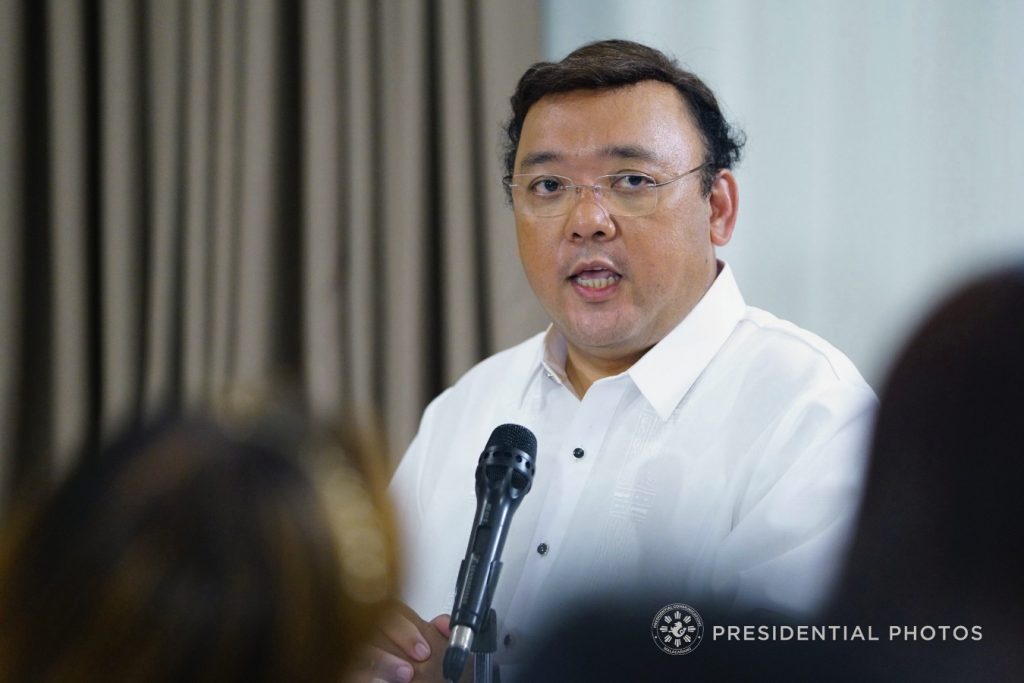
MANILA – Malacañang said on Thursday said it respects the decision of the United States (US) to impose visa restrictions on 24 Chinese firms for their supposed involvement in militarization activities in the hotly-contested South China Sea.
In a virtual press briefing aired on state-run PTV-4, Presidential Spokesperson Harry Roque acknowledged the US’ right to take action against Chinese companies involved in advancing Beijing’s territorial claims in South China Sea.
“Iyang desisyon kung sino ang papapasukin sa teritoryo ng isang bansa ay desisyon po iyan ng isang soberenyang bansa. So nirerespeto po natin iyang desisyon na iyan (That decision as to who can enter the territory of a country is a decision made by a sovereign state. So we are respecting that decision),” Roque said.
On Wednesday, the US announced its decision to add 24 Chinese firms to its “Entity List” for their supposed role in helping the Chinese military “construct and militarize the internationally condemned artificial islands in the South China Sea.”
The US’ Entity List is a tool utilized by its Bureau of Industry and Security to “restrict the export, re-export, and transfer (in-country) of items” subject to the Export Administration Regulations to persons believed to be involved in activities that may affect the country’s national security or foreign policy interests.
Among the Chinese companies included in the Entity List were several firms related to China Communications Construction Co., Beijing Huanjia Telecommunication, Changzhou Guogang Data Communications, China Electronics Technology Group Corp., China Electronics Technology Group, and China Shipbuilding Group.
The US’ latest move came as it lamented that China’s continued militarization of disputed South China Sea undermines the sovereign rights of its partners in the region.
In a separate statement, US Secretary of State Mike Pompeo said the fresh directive is the Washington’s way to show support for a “free and open” South China Sea.
Pompeo said the visa restriction will be imposed on those “responsible for, or complicit in” either the large-scale reclamation, construction, or militarization of disputed outposts in the South China Sea.
The restriction, Pompeo said, also applies to individuals involved in China’s “use of coercion against Southeast Asian claimants to inhibit their access to offshore resources.”
China has long-standing South China Sea disputes with the Philippines, Brunei, Malaysia, Vietnam, and Taiwan.
Asked how the Philippines would balance its interest amid the apparent tiff between US and China, Roque said the stance of President Rodrigo Duterte is to uphold the country’s national interest.
“Malinaw po ang posisyon ni Presidente. Ang itataguyod po niya ay ang pang-national na interest ng Pilipinas sa gitna po ng banggaan ng dalawang dambuhalang mga bansa (The President’s position is clear. He will uphold the Philippines’ national interest amid the ongoing spat between the two giant countries),” Roque said.
The Philippines won its arbitration case filed against China on July 12, 2016 when the Hague-based Permanent Court of Arbitration ruled that Beijing has “no legal basis” to claim historic rights over almost the entire South China Sea.
Malacañang has repeatedly said the Philippines, without ignoring the arbitral ruling, will pursue a “peaceful and diplomatic” approach to resolve the sea disputes with China.